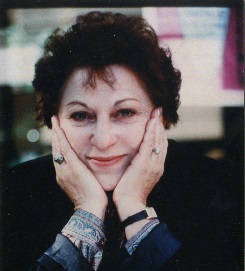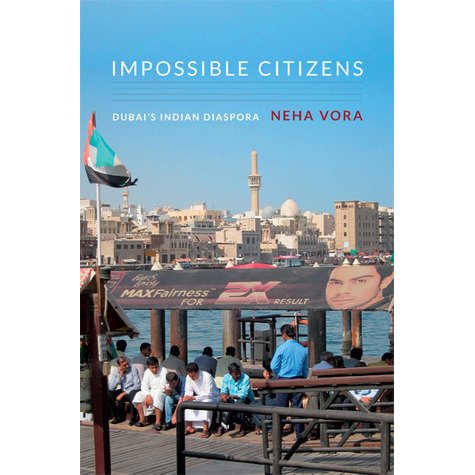-
Add to cartQuick view
Marvine Howe. Al-Andalus Rediscovered: Iberia’s New Muslims. London: Hurst, 2012. 289 pp.
Marvine Howe. Al-Andalus Rediscovered: Iberia’s New Muslims. London: Hurst, 2012. 289 pp.
$5.00Free!Add to cartQuick view -
Add to cartQuick view
Neha Vora. Impossible Citizens: Dubai’s Indian Diaspora Durham: Duke University Press, 2013. 264 pp.
Neha Vora. Impossible Citizens: Dubai’s Indian Diaspora
Durham: Duke University Press, 2013. 264 pp.$5.00Free!Add to cartQuick view -
Add to cartQuick view
Sean Roberts. Printing a Mediterranean World: Florence, Constantinople, and the Renaissance of Geography I Tatti Studies in Italian Renaissance History. Cambridge, MA: Harvard University Press, 2013. 293 pp.
Sean Roberts. Printing a Mediterranean World: Florence, Constantinople, and the Renaissance of Geography I Tatti Studies in Italian Renaissance History. Cambridge, MA: Harvard University Press, 2013. 293 pp.
$5.00Free!Add to cartQuick view -
 Add to cartQuick view
Add to cartQuick viewDoes Turkish Literature Exist? An Attempt to Answer through the Works of Leyla Erbil, Şavkar Altınel, and Ataol Behramoğlu
Free!This dossier presents three translated essays, by Leyla Erbil (1931–2013), Şavkar Altınel (1953–), and Ataol Behramoğlu (1942–), that inquire into the question of authenticity as related to tradition, individuality, and artistic creativity. The authors try to define what these concepts mean in the Turkish literary field. Prof. Sibel Erol’s essay serves as both an editorial introduction to these translations and an investigation in its own right into the question of whether there is a real Turkish literature. She engages with the heart of the debate through an analysis of the Turkish writer Erbil’s essay titled “On the Question of an Authentic and Original Turkish Literature.” Altınel’s “Yahya Kemal, T. S. Eliot, and the Force of ‘Tradition'” and Behramoğlu’s “Organic Poetry,” while not written directly in response to Erbil’s essay or the question she raises, are in conversation with each other, enriching the debate on literary tradition in general and the state of Turkish literature in particular.
Add to cartQuick view -
Add to cartQuick view
May Your Sons Settle the Land: David Ben-Gurion’s Attitude toward Tel Aviv as Reflected in the Press
Free!With the establishment of the State of Israel and the reduction of power and political status that the Tel Aviv municipality had enjoyed under the British Mandate, an open confrontation erupted between the central government, led by the Mapai Party, and Tel Aviv’s municipal government, aligned with the General Zionists. This dogged struggle was thoroughly covered in the Hebrew press, which at the time consisted partly of partisan newspapers. This article examines and analyzes the attitude of David Ben-Gurion, Israel’s first prime minister, toward Tel Aviv in particular and toward the process of urbanization in the state in general. Through the prism of Tel Aviv, the article defines and analyzes Ben-Gurion’s ambivalent attitude toward the emergent Israeli urbanization. To understand Ben-Gurion’s attitude toward both urbanization and Tel Aviv, the article also examines the underlying approach of the leadership of the Yishuv, and later of the state, toward cities as opposed to rural areas, and it considers the settlement strategy during the Mandate and the early years of the state. Did Ben-Gurion indeed seek to disperse Tel Aviv’s residents throughout the country? Did he turn his back on the city he had lived in and in which he had declared the independence of the State of Israel? The article deals with these and other questions.
Add to cartQuick view -
 Add to cartQuick view
Add to cartQuick viewOn the Question of an Authentic and Original Turkish Literature: Leyla Erbil
Free!This dossier presents three translated essays, by Leyla Erbil (1931–2013), Şavkar Altınel (1953–), and Ataol Behramoğlu (1942–), that inquire into the question of authenticity as related to tradition, individuality, and artistic creativity. The authors try to define what these concepts mean in the Turkish literary field. Prof. Sibel Erol’s essay serves as both an editorial introduction to these translations and an investigation in its own right into the question of whether there is a real Turkish literature. She engages with the heart of the debate through an analysis of the Turkish writer Erbil’s essay titled “On the Question of an Authentic and Original Turkish Literature.” Altınel’s “Yahya Kemal, T. S. Eliot, and the Force of ‘Tradition'” and Behramoğlu’s “Organic Poetry,” while not written directly in response to Erbil’s essay or the question she raises, are in conversation with each other, enriching the debate on literary tradition in general and the state of Turkish literature in particular.
Add to cartQuick view -
Add to cartQuick view
The Making of Palestinian Christian Womanhood: Gender, Class, and Community in Mandate Palestine
This article seeks to expand the study of Palestinian Arab women’s self-identification and social and political activism by examining how Arab Christian women viewed, shaped, and managed their participation in the project of defining Palestinian national identity during the period of British colonial occupation. During the Mandate period, elite Christian women made particular use of mission schools and Christian women’s charitable organizations as platforms for promoting a vision of Palestinian nationalism as modern, nonsectarian, and politically progressive, in hopes of creating a Palestinian national identity in which they could claim a central role. As the Mandate wore on, though, it became increasingly evident that the presentation of Christian women as central to the expression of a broadly based, nonsectarian, modernizing, Westernizing Palestinian national identity was belied somewhat by the communal and class consciousness that education in elite Christian schools and membership in charitable organizations engendered. The way in which this purportedly middle-class, nonsectarian nationalist vision was developed and articulated in highly class- and communally conscious venues ultimately limited its purview and linked it with oppressive colonial practices in the eyes of much of the Palestinian Arab population.
$5.00Free!Add to cartQuick view -
Add to cartQuick view
The Palestinian Historiography of Family Leadership during the British Mandate
Free!This article seeks to expand the study of Palestinian Arab women’s self-identification and social and political activism by examining how Arab Christian women viewed, shaped, and managed their participation in the project of defining Palestinian national identity during the period of British colonial occupation. During the Mandate period, elite Christian women made particular use of mission schools and Christian women’s charitable organizations as platforms for promoting a vision of Palestinian nationalism as modern, nonsectarian, and politically progressive, in hopes of creating a Palestinian national identity in which they could claim a central role. As the Mandate wore on, though, it became increasingly evident that the presentation of Christian women as central to the expression of a broadly based, nonsectarian, modernizing, Westernizing Palestinian national identity was belied somewhat by the communal and class consciousness that education in elite Christian schools and membership in charitable organizations engendered. The way in which this purportedly middle-class, nonsectarian nationalist vision was developed and articulated in highly class- and communally conscious venues ultimately limited its purview and linked it with oppressive colonial practices in the eyes of much of the Palestinian Arab population.
Add to cartQuick view -
Add to cartQuick view
Yahya Kemal, T. S. Eliot, and the Force of “Tradition”: Şavkar Altınel
Free!This dossier presents three translated essays, by Leyla Erbil (1931–2013), Şavkar Altınel (1953–), and Ataol Behramoğlu (1942–), that inquire into the question of authenticity as related to tradition, individuality, and artistic creativity. The authors try to define what these concepts mean in the Turkish literary field. Prof. Sibel Erol’s essay serves as both an editorial introduction to these translations and an investigation in its own right into the question of whether there is a real Turkish literature. She engages with the heart of the debate through an analysis of the Turkish writer Erbil’s essay titled “On the Question of an Authentic and Original Turkish Literature.” Altınel’s “Yahya Kemal, T. S. Eliot, and the Force of ‘Tradition'” and Behramoğlu’s “Organic Poetry,” while not written directly in response to Erbil’s essay or the question she raises, are in conversation with each other, enriching the debate on literary tradition in general and the state of Turkish literature in particular.
Add to cartQuick view -
Add to cartQuick view
Life under the Last Sky: History, Memory, and Trauma in Dudu Busi’s Noble Savage
Free!This essay addresses questions of responsibility and survival and the possibilities of life in a fictional, contemporary Israeli urban setting imbued with violence and its related memories from both the recent and pre-Israeli past. In Noble Savage, Mizrahi novelist Dudu Busi engages with the question of survival in a southern Tel Aviv slum. Eli, the protagonist, perceives life in the slum as an ongoing struggle for survival. Life is a maze that Eli navigates by defending himself and avoiding the omnipresent violence that exists both outside in the neighborhood and inside his own home. Utilizing theories of space, and addressing questions of trauma and testimony, the essay analyzes the violent relations that are formed between space, body, and subject. These violent relations, I argue, imprison the characters in a cycle of unethical and politically undesirable behavior. These questions of survival and life are conveyed beyond the literary setting and into the reality of the novel’s reception as a “threatening” or “dangerous” book. The essay presents Busi’s novel as the basis for a critical stance vis-à-vis the violent reality in Israeli slums. Busi’s stance does not absolve the residents of accountability for their violent acts; instead, it urges them to assume responsibility for these acts, which might put an end to the cycle of violence.
Add to cartQuick view -
Add to cartQuick view
Organic Poetry: Ataol Behramoğlu
Free!This dossier presents three translated essays, by Leyla Erbil (1931–2013), Şavkar Altınel (1953–), and Ataol Behramoğlu (1942–), that inquire into the question of authenticity as related to tradition, individuality, and artistic creativity. The authors try to define what these concepts mean in the Turkish literary field. Prof. Sibel Erol’s essay serves as both an editorial introduction to these translations and an investigation in its own right into the question of whether there is a real Turkish literature. She engages with the heart of the debate through an analysis of the Turkish writer Erbil’s essay titled “On the Question of an Authentic and Original Turkish Literature.” Altınel’s “Yahya Kemal, T. S. Eliot, and the Force of ‘Tradition'” and Behramoğlu’s “Organic Poetry,” while not written directly in response to Erbil’s essay or the question she raises, are in conversation with each other, enriching the debate on literary tradition in general and the state of Turkish literature in particular.
Add to cartQuick view
- Home
- About JLS
- Issues
- Vol. 9 No. 1 | Summer 2019
- Vol 8 No 2 Winter 2018
- Vol. 8, No. 1: Summer 2018
- Vol. 7, No. 2: Winter 2017
- Vol. 7, 1: Summer 2017
- Vol. 6, Summer/Winter 2016
- Vol. 5, No. 2 Winter 2015
- Vol. 5, No. 1 Summer 2015
- Vol. 4, No. 2 Winter 2014
- Vol. 4, No. 1 Summer 2014
- Vol. 3, No. 2 Winter 2013
- Vol. 3, No. 1 Summer 2013
- Vol. 2, No. 2 Winter 2012
- Vol. 2, No. 1 Summer 2012
- Vol. 1, No. 2 Winter 2011
- Vol. 1, No. 1 Summer 2011
- Blog
- dock-uments
- Subscribe
- Submit
- Contact


